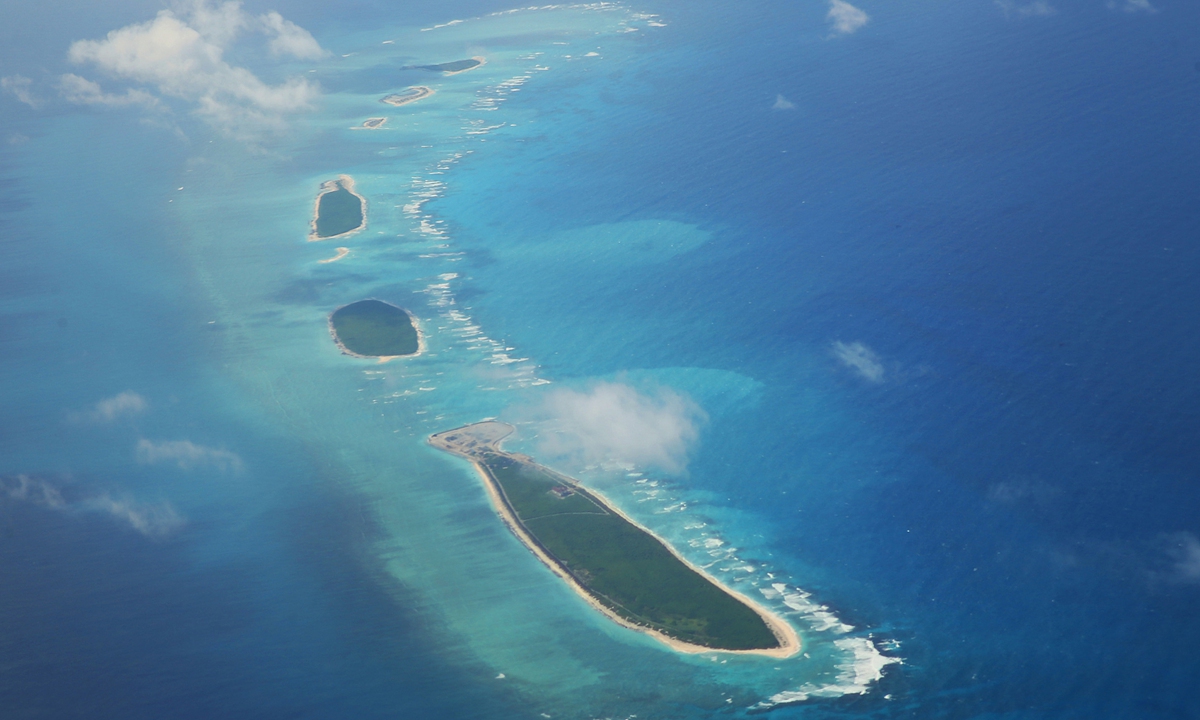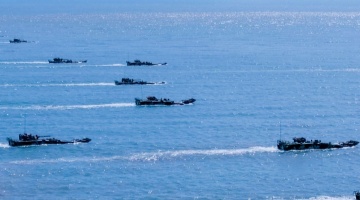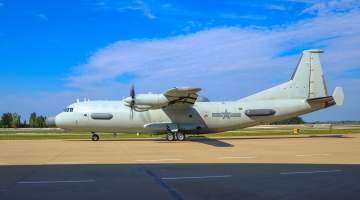
South China Sea Photo: VCG
In a move that each side has own calculations, India and the Philippines are set to conduct joint maritime exercises in the South China Sea this week, coinciding with Philippine President Ferdinand Marcos Jr.'s official visit to India from Monday to Friday, Philippine News Agency reported, calling the exercises "a bilateral maritime cooperative activity." Chinese experts described the move of India as "gesture politics," which is intended to offer fake commitments to the Philippines regarding the South China Sea issue and to peddle Indian weapons, while Manila seeks to further incite tensions in the region.
By next week, while the President is in India, we will have a bilateral maritime cooperative activity with India. The Philippine Navy and three Indian ships will sail together to the South China Sea, according to the Philippine News Agency, citing Armed Forces of the Philippines chief Gen. Romeo Brawner Jr.
Some Indian media outlets have hyped the connection between the upcoming drills and China. According to a Hindustan Times report on Sunday, India and the Philippines will launch the exercises in waters near Huangyan Dao, with the report describing the island as "a focal point of the maritime dispute between Manila and Beijing." The report also hyped that President Marcos Jr.'s visit "comes at a time of heightened tensions in the South China Sea."
The joint drills in the South China Sea are largely symbolic, aimed at highlighting India's political presence and signaling a greater willingness to intervene in regional affairs, Chen Xiangmiao, a research fellow at the National Institute for South China Sea Studies, told the Global Times on Sunday.
"This is more of gesture politics than a substantive exercise," Chen said. "But it could send a misleading message to the Philippines, making it wrongly believe that India supports its position and will provide assistance regarding the South China Sea issue."
The Indian Navy has increased its presence in Southeast Asia with multiple ship deployments aimed at strengthening maritime partnerships, Indian media The Economic Times claimed, alleging that "the move aligns with India's broader strategy of regional engagement in the Indo-Pacific, especially as China asserts influence across strategic waters."
For years, India has sought to expand its influence in the Asia-Pacific region. On one hand, this stems from India's self-perception as a global power and its ambition to project influence in international affairs, particularly maritime issues. On the other hand, India also attempts to strengthen military and security cooperation with ASEAN countries, including the Philippines, by intervening in maritime issues involving China — especially the South China Sea issue — as a way to form a kind of political and diplomatic check on China, Ding Duo, director of the Research Center for International and Regional Studies at the National Institute for South China Sea Studies, told the Global Times on Sunday.
USNI News, a news service agency under the US Naval Institute highlighted that compared to previous navy-to-navy engagements, such as joint sails, passing exercises and maritime partnership exercises, the maritime cooperative activity tackles force interoperability and demonstrates support for the Philippines amid its struggle with China.
The Philippines' attempt to draw India and other countries into joint exercises in the South China Sea reveal its intention to leverage the presence of extraterritorial powers to further stir up tensions in the region. Manila appears determined to frame the South China Sea issue as a global hotspot, to attract increased attention from the international community. By doing so, the Philippines seeks to highlight its so-called strategic or security value in an attempt to avoid being sidelined by traditional allies such as the US and Japan, Ding said.
Chen warned that India's involvement as an extraterritorial power in the South China Sea could further intensify competition in the region. "It may embolden the Philippines to act more aggressively, especially under the encouragement of countries like the US, Japan, and Australia, leading it to believe its policy stance enjoys broader international support. This could prolong maritime confrontations and escalate tensions," he said.
Meanwhile, Chen emphasized that the drill in the South China Sea lacks real combat significance and is unlikely to yield substantial operational results. "The joint drills are unlikely to achieve meaningful outcomes," he said.
Ahead of the drills, the Philippines is set to receive more military equipment from India, according to Philippine Armed Forces Chief Gen. Romeo Brawner Jr., Philippine News Agency reported.
"We are in fact ordering more equipment and weapon systems from India," Brawner told reporters aboard the INS Shakti on Thursday night when asked on whether the Philippines is planning to acquire more equipment from India.
Chen further noted that India's participation in the joint drills also serves to signal "support" for the Philippines in exchange for arms sales. "India seeks to expand its influence in Southeast Asia despite limited capabilities. By showcasing its support for the Philippines in regional affairs, it aims to boost its weapons exports and demonstrate its strategic presence," he added.
Earlier, Chinese Foreign Ministry spokesperson Guo Jiakun said that China opposes attempts to increase military alliance and engage in military deployment and operation targeting others under the pretext of the South China Sea issue.
Any defense or security cooperation between the Philippines and other countries should not target any third party or meddle in the South China Sea disputes, still less provoke confrontation or escalate tensions in the region, Guo said.
The Philippines is a genuine troublemaker and a creator of danger in the South China Sea, Zhang Xiaogang, a spokesperson for the Chinese Ministry of National Defense, told a press conference on Wednesday.
The Philippines has not only illegally occupied some islands and reefs of China's Nansha Islands, but has also frequently carried out provocative and disruptive actions at sea against the Chinese side, while cooperating with extraterritorial forces to stir up trouble in the South China Sea, Zhang said, in response to a query regarding the Philippine defense chief's claim that the Philippine military will respond to China's "aggressive" actions in the South China Sea and that the Philippine side is strengthening defense cooperation with the United States, Australia, Japan and India.













